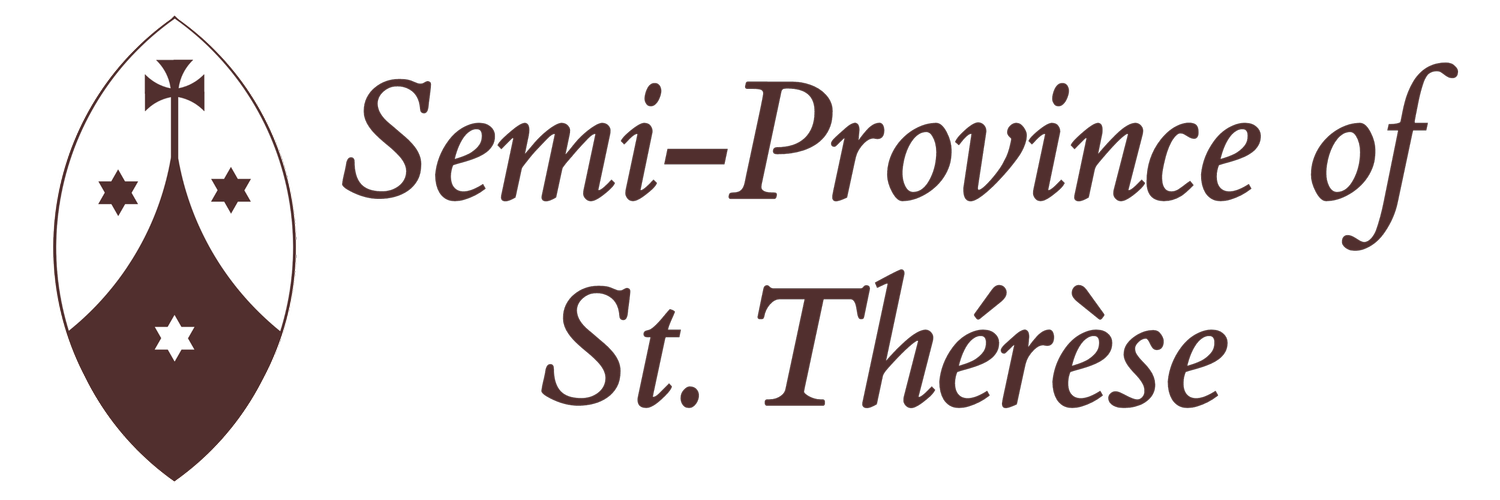Listening Deeply
Fr. Bonaventure Sauer, OCD
Let me begin by quoting lines from a poem by Jessica Powers (who in Carmel was known as Sr. Miriam of the Holy Spirit, OCD):
Music by right is for the solitaries whom a long silence trains to the profound.
The lines are from the poem "The Evening Chimes." It is a seemingly simple and straightforward poem. Yet its subject matter, the thing it's trying to tell us, has a spiritually intricate - perhaps "delicate" is a better word - a spiritually delicate weight to it. Thus, one struggles to express it or capture it in words. Yet the poem, I would say, does a superb job. [Now that I've piqued your interest, I can only suggest that you go get a copy of The Selected Poetry of Jessica Powers, edited by Regina Siegfried and Robert Morneau, there find the poem, and read it in its entirety.]
Second, let me quote a prayer I sometimes use as I begin mental prayer. I've forgotten where I got it. It reads:
Now, O God, calm me into a quietness that heals and listens, and molds my longing and passions, my wounds and wonderings, into a more holy and human shape.
The capacity to "listen deeply"--an expression I'll use for this particular movement of the heart which, first, the poem and, second, the prayer speak of - this capacity does not come without practice. We have to intend it, want it, seek it, grow in it, we have to practice it. It has to be taken up as a goal of our daily spiritual training. That's what the lines quoted above from the poem by Jessica Powers suggest. That's what the prayer quoted above prays for.
When we "listen deeply" to, say, natural sounds, the thing we are actually hearing can, of course, vary. It may be the sound of wind at the window, or of geese honking as they fly by overhead, or of a distant train, or of waves washing against the shore, or of rain pounding the roof, or the murmur of water running over stone along a creek bed. These are each particularly haunting natural sounds. Or at least I find them so. And when I listen to them, I hear, yes, the sound itself. But I hear, "deeply," something else, something hidden yet present within the sound. You might say the sounds have acquired a kind of sacramental quality to them. They help make present the sacred.
Of course, in addition to these natural sounds, there are also those specifically human and humanly expressive sounds. I have in mind singing, and music generally. Or speech itself, which is to say the sound of another's voice. Or that sound which is also meaningfulness, what might be called the Word - the sound of having a heart-to-heart conversation with someone, for example. In all cases, both the poem and prayer quoted above remind us of the simple, spiritual fact that listening, if it is to be "deep"-listening, that is, happens at the level of a real interior receptivity, listening that therefore touches us, moves us, awakens us, that molds and heals us "into a more holy and human shape" - that such listening occurs not accidentally, but as a skill, a virtue, a practice we have been trained in by a steady diet of both interior silence and, as best we can manage it, exterior solitude. We can't hear if we don't listen, and we can't listen if we're not able to still the exterior and interior noise and so attend to another, turning ourselves, our mind's focus, towards him or her or, in the case of natural sounds, to whatever it may be.
To acquire this virtue we need to be schooled, as I've said, by steady application of that twofold healing balm which is silence and solitude. The thought is simple. Solitude leads to an exterior quiet, which then nurtures an interior quiet. A good part of mental prayer is, for starters, simply finding a place of solitude and silence, then learning how to sit in that silence, letting it permeate us as though we were sponges absorbing water. That in itself, no matter what the content or movement of prayer that may follow, if prayer does follow at all, that in itself is of great value, helping to make us spiritually richer, more mature persons.
Which leads to a final thought suggested by a well-known saying of St. John of the Cross [n.100 of "The Sayings," Collected Works, ICS, Kavanagh/ Rodriguez]:
The Father spoke one Word, which was his Son, and this Word he speaks always in eternal silence, and in silence must it be heard by the soul.
There is a "listening deeply" that draws us into and past, or beneath, the sounds we might be hearing and listening to at any given moment. This listening even draws us beyond the relative silence that enfolds us in a moment of solitude. This listening is a listening for the "sound of sheer silence" (1Kgs 19:12), that which called Elijah to come stand at the mouth of the cave and see God passing by. This sort of "listening deeply" gathers us into an interior stillness that has the character and feel of the holy, the sacred, the divine. It is the stillness of a transcendent, abiding presence. As a moment of internal focus--not tension, but focus--it is very difficult to sustain for anything but the briefest span of time. But length doesn't matter, depth does. The moment, because spiritually so profound, is life-giving and enriching. It heals and remakes us. It is a kind of music for the soul. As St. John of the Cross says, it is a Word spoken in silence, which one must listen for in that silence.
